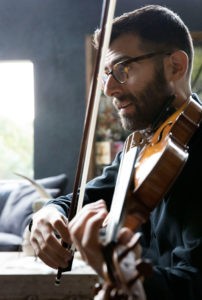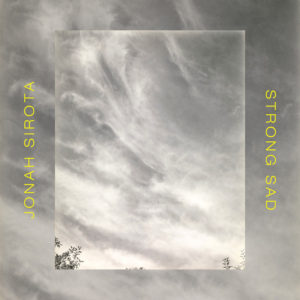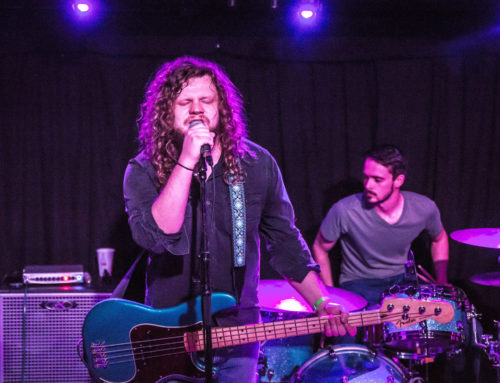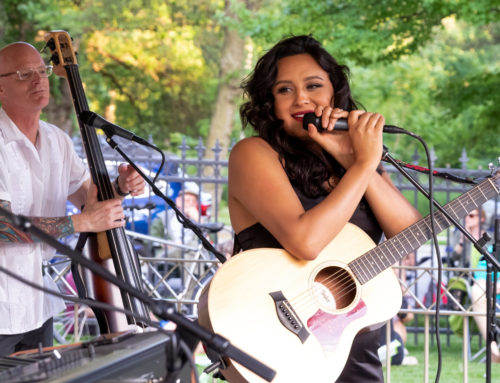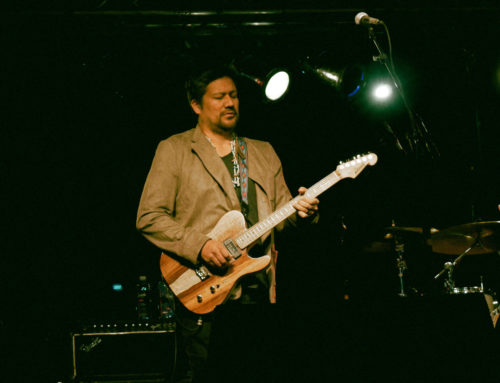By Scott Scholz
June 5, 2018
When musical people find themselves in the midst of grief or struggle, they fall mostly into two broad camps. The first seeks out decidedly happy music, full of uptempo major-key warmth to push those gray skies away, or at least escape from them for the length of a song or two. Sometimes those songs are connected to memories of happier times, or perhaps a soundtrack of upbeat music more generally gets those listeners in a receptive mood for moving on or transcendence.
The second camp seeks out sad music, with plaintive melodies that delicately articulate the shape of suffering itself, evoking melancholy memories. Those who don’t understand this approach may wonder why a person already feeling sad would want to wallow in similarly doleful sounds, but there is a method to this madness: one can resonate with sadness through music, feel it being expressed and processed in the air, and begin to move forward while respecting its presence in the moment.
Consider Lincoln violist Jonah Sirota’s new album STRONG SAD a proof of concept toward healing-through-sad-songs. Arriving at the end of his tenure in the Chiara String Quartet (whose retirement is a point of sadness for this listener), STRONG SAD is Sirota’s recorded solo debut, featuring elegiac works by eight composers who approach the idea of sadness from multiple perspectives, small and large. Recorded between Lincoln and Reykjavik, Iceland, the album will be released worldwide on National Sawdust Tracks on June 22, but lucky Lincolnites can get a sneak preview at THE BAY on Sunday, June 10, where the other members of Chiara and organist Kurt Knecht will join Sirota in performing music from the album.
The music of STRONG SAD employs many compositional approaches, all unified by Sirota’s artful approach to the viola. Album opener “CURRENTly” was improvised by the Sirota/Knecht duo Mondegreen (Other Music on KZUM listeners may recall hearing Mondegreen perform live on the air in 2013). This introduction feels like a ship slowly drifting toward shore, made of gently rolling ostinato lines and long tones exchanged so sensitively that this improvisation sounds carefully composed. “CURRENTly” is followed by a fascinating studio composition, “Remnant,” composed by Valgeir Sigur∂sson. This piece explores the notion of loss quite literally through the methods of its creation: Sigur∂sson had Sirota improvise over an original track which was then removed from the final work.
Rodney Lister’s “Quodlibet” is a gorgeous contrapuntal juxtaposition of three Southern hymns into an elegy for the composer’s father. Originally the third movement of a larger solo viola sonata called “Complicated Grief,” this version was arranged by Sirota to be made through overdubbing the layers together in a studio setting. This is followed by Sirota’s own recorded debut as a composer, “When You Lose You Win.” Featuring a chamber-orchestra’s-worth of overdubbed viola work, this piece is occasionally reminiscent of Bartok’s most plaintive moments, balancing beautiful melodies, occasional chromatic flourishes and unusual effects like pizzicato-glissando punctuations.
A.J. McCaffrey contributes a viola/piano duet piece, “Here Come the Waterworks.” As one might guess from the title, the music evokes a period of grief interrupted by moments of crying. This piece uses a particularly wide dynamic range, highlighting both sensitive playing by pianist Molly Morkoski and particularly tricky viola passages for Sirota that employ microtones. Next, we have a loop-based piece, “Vento e sole – elegy for Jonah,” by Paola Prestini. Cloaked in a warm reverb, this work explores the boundaries of solitude, contrasting lonely (but often very virtuosic) solo passages with denser loop pedal-based sections.
The final two pieces are somewhat of a family affair. “Elegy for a Lost World” is a viola/piano duet composed by Jonah’s father, Robert Sirota. Intended to evoke the innocence and loss of youth, this piece spends most of its duration just outside the boundaries of tonality, becoming gradually quieter in its final minutes like fading memories. Album closer “Lean” is a duet for Jonah and his sister, violist Nadia Sirota, composed by Nico Muhly. Centered on a pre-recorded viola drone, Jonah and Nadia’s violas chase one another around in playful canonic fragments, as siblings often do. Although this is the shortest piece found on STRONG SAD, it plays an important role in the album’s narrative, ending in a peaceful, redemptive place.
This Sunday, June 10, you can enjoy the unique pleasure of being among the first to hear the pieces of STRONG SAD performed at THE BAY. And it’s not just the music that will put you on a path to healing and contentment: proceeds from the concert go to Skate for Change, Lincoln’s own nonprofit started by founders of THE BAY that has become an international group of chapters supporting their communities. Everyone wins with STRONG SAD.
Jonah Sirota album release
Sunday, June 10, 7 PM
THE BAY, 2005 Y St. Lincoln, NE
$10
www.jonahsirota.com
jonahsirota.bandcamp.com
Scott Scholz writes about experimental and contemporary music from around the world and is a former co-host of KZUM’s Other Music show, which airs Sundays from 10 P.M. to midnight.

